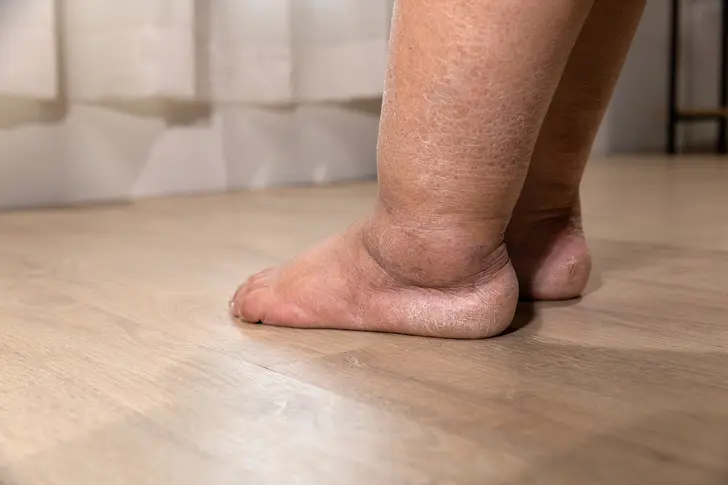- Overview
- Symptoms
- Causes & Risks
- Tests & Diagnosis
- Treatment
- Living With
- Complications
- View Full Guide
Psoriatic Arthritis Treatment Options


Psoriatic Arthritis Treatments
When you have psoriatic arthritis, you may feel joint pain, swelling, and stiffness. To prevent damage to your joints and help you feel better, your treatment plan will focus on lowering inflammation. Many treatments can do this, but finding the right one for you will depend on your unique situation.

Over-the-Counter NSAIDs
If your symptoms aren't too severe, your doctor may recommend over-the-counter nonsteroidal anti-inflammatory drugs (NSAIDs), such as aspirin, ibuprofen, and naproxen, to reduce pain and inflammation. These are often the first step in treating your psoriatic arthritis without a prescription.

Prescription NSAIDs
If your symptoms are more severe, you may be prescribed stronger NSAIDs. These include celecoxib, diclofenac, and indomethacin. These medications work well but can have side effects.

Steroids
Corticosteroids, such as prednisone and methylprednisolone, are powerful anti-inflammatory drugs. They can be used for short-term relief of severe symptoms but are not recommended for long-term use because of their side effects.

DMARDs
Disease-modifying antirheumatic drugs (DMARDs) can slow down your disease progression. You may be given DMARDs such as leflunomide, methotrexate, or sulfasalazine. They can prevent joint damage over time and are used long-term.

Biologics
If your psoriatic arthritis symptoms are severe enough, your doctor may prescribe a biologic, such as TNF inhibitors or interleukin inhibitors. These block specific proteins that cause inflammation and joint damage. They can be very effective but may weaken your immune system, which leaves you at risk when you have the flu or another infection.
PHOTO CREDENTIALS
Slide 1: Toa55/Shutterstock
Slide 2: PeopleImages.com - Yuri A/Shutterstock
Slide 3: SkazovD/Shutterstock
Slide 4: Sonis Photography/Shutterstock
Slide 5: luchschenF/Shutterstock
Slide 6: PeopleImages.com - Yuri A/Shutterstock
SOURCES:
Tiwari, V. Psoriatic Arthritis, StatPearls Publishing, 2024.
Cleveland Clinic: "Psoriatic Arthritis," "NSAIDs (Nonsteroidal Anti-Inflammatory Drugs)," "Disease-Modifying Antirheumatic Drugs (DMARDs)," "Arthroplasty (Joint Replacement)."
American College of Rheumatology: "Psoriatic Arthritis," "Anakinra (Kineret)," "Sarilumab (Kevzara)," "Tocilizumab (Actermra)," "Secukinumab (Cosentyx)," "Ixekizumab (Taltz)," "Abatacept (Orencia)."
Gerriets, V. Tumor Necrosis Factor Inhibitors, StatPearls Publishing, 2024.
FDA: "Biosimilars Basics for Patients," "FDA approves Inflectra, a biosimilar to Remicade," "FDA approves Amjevita, a biosimilar to Humira."
Padda, I.S. Apremilast, StatPearls Publishing, 2024.
National Psoriasis Foundation: "Psoriatic Arthritis," "Psoriatic Arthritis Treatments," "Alternative Therapies," "Anti-Inflammatory Diet," "Get the most from your primary care provider," "Living With Psoriatic Arthritis," "Pros and cons of phototherapy," "Treating Psoriatic Arthritis," "Vitamins and Supplements."
American Academy of Dermatology: "Guidelines of care for the management of psoriasis and psoriatic arthritis."
MedlinePlus Medical Encyclopedia: "Diclofenac and misoprostol."
Canadian Journal of Infectious Diseases and Medical Microbiology.
UpToDate: "Patient education: Psoriatic arthritis (Beyond the Basics)," "Treatment of psoriatic arthritis."
Therapeutic Advances in Musculoskeletal Disease.
Mayo Clinic: "Psoriatic Arthritis."
Arthritis Foundation: "Light Therapy for Psoriatic Arthritis."
NYU Langone Health: "Lifestyle Changes for Psoriatic Arthritis."